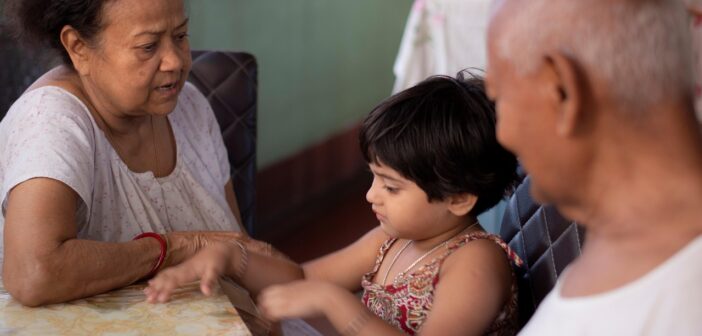1. Introduction
When a parent is diagnosed with mesothelioma—a rare but aggressive cancer caused by asbestos exposure—the emotional ripple effect is immense. For adult children, the diagnosis doesn’t just bring fear and uncertainty about the future, but also the overwhelming responsibility of caregiving, decision-making, and emotional support. The bond between a parent and child takes on new depth during serious illness, often accompanied by stress, guilt, grief, and complex emotional decisions.
Unlike young children, adult children are expected to handle logistical and emotional burdens with maturity. Yet, this expectation often leaves their own mental health needs unmet. Understanding the emotional toll on this demographic is essential to creating better support structures—not only for patients but for their families who stand beside them in silence and strength.
This article provides a personal and analytical perspective on how adult children cope with a parent’s mesothelioma diagnosis, including the psychological impact, challenges of caregiving, and opportunities for healing and advocacy.
2. Background & Context
Mesothelioma affects approximately 3,000 Americans annually, with a majority of cases linked to occupational asbestos exposure CDC. Often diagnosed decades after the exposure, it typically afflicts individuals in their 60s and 70s—meaning their children are usually adults by the time symptoms appear.
Adult children find themselves in a dual-role: managing their own families, careers, and lives while simultaneously navigating the healthcare system on behalf of their parent. This caregiving load can become emotionally and physically exhausting. According to the National Alliance for Caregiving, nearly 25% of caregivers in the U.S. are adult children, many of whom report high levels of emotional strain.
The prognosis for mesothelioma is often grim, with average life expectancy ranging from 12 to 21 months post-diagnosis depending on the stage and treatment approach American Cancer Society. This limited window forces families into a compressed period of shock, acceptance, and end-of-life preparation.
In such intense circumstances, emotional health tends to be overlooked. The psychological burden includes anticipatory grief, unresolved family dynamics, and the trauma of witnessing physical decline. This article delves deeper into these experiences, offering insights from both personal narratives and mental health literature.
3. Key Highlights from the Report
A Caregiver’s Silent Struggle
Adult children commonly step into the role of primary caregivers, a position filled with emotional landmines. One daughter shared in a Mesothelioma Applied Research Foundation interview that watching her father fade from a vibrant construction worker to a fragile patient felt like “mourning him while he was still alive.” This phenomenon, known as anticipatory grief, is prevalent among mesothelioma families.
The unpredictability of mesothelioma progression adds to the emotional strain. Pleural mesothelioma may allow months of semi-normal activity, while peritoneal variants can spiral quickly. Adult children often experience whiplash between moments of hope and devastating reality. Psychologists compare this rollercoaster to the emotional intensity found in PTSD cases, especially when compounded by guilt or regret APA.
Guilt and Role Reversal
Many adult children report feelings of guilt—either for not recognizing symptoms earlier, not doing more to prevent exposure, or not being available enough. These feelings are exacerbated when siblings disagree on treatment or caregiving plans. One adult son recounted in a Mesothelioma.com story how family disagreements over hospice care “nearly broke the family apart.”
Additionally, the role reversal—where the child now makes decisions for the parent—can be psychologically jarring. It forces them to grapple with mortality, loss of parental authority, and fears of future grief. These emotional shifts are rarely discussed but leave deep emotional scars.
Emotional Suppression and Isolation
Adult children often mask their emotions to remain “the strong one” for both their parent and extended family. However, this emotional suppression has long-term effects. A University of California study found that chronic emotional suppression can lead to depression, cardiovascular issues, and deteriorated family relationships.
Due to the rarity of mesothelioma, many adult children also report feeling isolated. Few support groups cater specifically to adult children of mesothelioma patients, making it hard to find relatable stories. Online communities and Facebook groups such as Mesothelioma Support Group: Info, Aid & Real Stories are beginning to fill this void, offering peer-to-peer emotional validation.
4. Deep Dive on Top Vendors
While “vendors” in this emotional context aren’t product sellers, several organizations serve as emotional, informational, and advocacy “vendors” for families dealing with mesothelioma. These include nonprofits, counseling services, and community platforms that provide targeted support for adult children navigating this journey.
1. Mesothelioma Applied Research Foundation (MARF)
The Mesothelioma Applied Research Foundation offers virtual support groups and one-on-one grief counseling. Their tailored programs for family caregivers, including adult children, are invaluable. MARF also offers educational webinars on what to expect during each stage of illness, empowering adult children to advocate confidently and compassionately.
2. CancerCare
CancerCare provides free, professional support services including individual therapy, support groups, and financial guidance. Their workshops on caregiver burnout and grief are particularly beneficial for adult children managing long-term emotional impacts.
3. Facebook and Peer Networks
Social media groups have become key emotional vendors in the digital age. The private Facebook group Mesothelioma Support Group: Info, Aid & Real Stories provides a judgment-free zone where adult children can express grief, confusion, or anger without fear. Stories shared in these groups validate emotions that many thought were uniquely theirs.
4. Hospice Services and Grief Counselors
End-of-life care often includes hospice services with grief counseling baked in. Many families report that hospice social workers became emotional lifelines during the final weeks. Providers like VITAS Healthcare offer pre-bereavement resources that specifically address anticipatory grief and unresolved family issues.
5. Legal Aid and Advocacy Firms
Some legal services, like those affiliated with the Mesothelioma Justice Network, help families not only file compensation claims but also access support during the emotionally taxing legal process. Knowing that justice is being pursued offers a sense of closure and relief to many adult children.
5. Strategic Takeaways for Buyers
If you are an adult child facing a parent’s mesothelioma diagnosis, there are several emotional and practical strategies to preserve your well-being during this difficult journey:
- Join Support Communities: Seek out caregiver support groups specifically tailored to mesothelioma. Validation and shared stories are powerful emotional tools.
- Speak to a Therapist: Emotional suppression is not sustainable. Professional counseling—especially one experienced in terminal illness—can help manage guilt, stress, and anticipatory grief.
- Designate a Care Team: You don’t have to do it alone. Include siblings, friends, and professionals in caregiving responsibilities to reduce emotional burnout.
- Embrace Grief Early: Anticipatory grief is real and valid. Prepare emotionally before the end-of-life stage arrives. This makes the eventual grief more navigable.
- Know Your Legal Rights: Understanding compensation, asbestos trust funds, and wrongful death lawsuits can also provide a sense of justice, which is emotionally healing for many families Mesothelioma Trust Funds.
Strategically approaching both emotional and logistical challenges makes the journey less isolating and more empowered.
6. Future Outlook or Market Trends
While mesothelioma remains rare, the awareness of its impact on families is growing. Organizations like the Asbestos Disease Awareness Organization (ADAO) are pushing for more inclusive support services, including adult caregiver-focused programs. This trend is reflected in growing numbers of online grief communities and more clinical research into the psychosocial effects of mesothelioma on families.
Additionally, mental health is increasingly recognized as a critical part of cancer care. Future treatment models will likely include embedded mental health professionals to support not just patients but their family caregivers. Expect more interdisciplinary approaches that combine oncology, psychology, and legal advocacy under one roof.
Technology will also play a major role in the future. AI-powered therapy bots, caregiver management apps, and virtual reality grief counseling are in experimental stages, offering hope for more accessible emotional support options in the coming years NIH Trends Report.
As mesothelioma litigation continues to hold corporations accountable, there is also increased funding for support services—a win for families already emotionally stretched thin.
7. Conclusion + Call to Action
The emotional toll of mesothelioma on adult children is often underestimated but profoundly real. From silent suffering to deep-seated guilt and overwhelming caregiving stress, this journey leaves lasting psychological imprints. But support exists—and no one has to go through this alone.
Whether you’re in the midst of caregiving or navigating life after loss, connecting with others who understand your struggle can be life-changing. Seek professional help, lean into your support networks, and explore organizations that speak directly to your experience.



